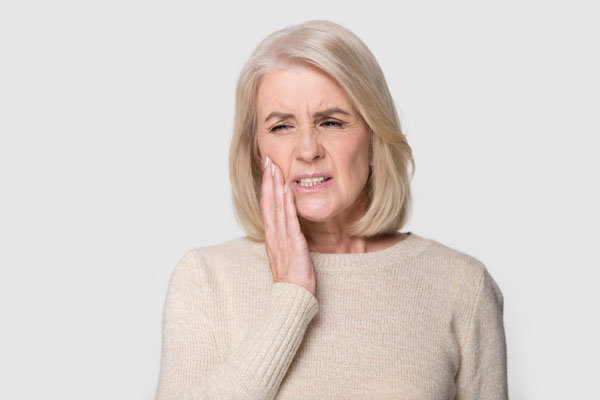 Denture adjustments keep prosthetic teeth from causing problems like sore spots, lacerations, and pain. Discomfort often happens due to a mismatch between the shape of a patient’s gums and the shape of their dentures. The result is constant slippage and rubbing that irritates the soft tissues of the mouth.
Denture adjustments keep prosthetic teeth from causing problems like sore spots, lacerations, and pain. Discomfort often happens due to a mismatch between the shape of a patient’s gums and the shape of their dentures. The result is constant slippage and rubbing that irritates the soft tissues of the mouth.
Why periodic denture adjustments have to happen
The roots of natural teeth flex in the jaw when a person bites down or grinds their teeth. This flexing action serves as a workout that stimulates the jawbone, causing it to absorb minerals from nearby blood vessels. In this way, the jaw replaces the minerals that it loses through a natural process known as bone resorption.
People who wear full or partial dentures lack the mechanism to maintain mass and density in the jaw. As the bone loses mass, it loses its definition in a gradual, constant process. Even if a set of dentures remains in perfect condition, it will still start to slip as the person's mouth changes. The person will notice that:
- The dentures become hard to wear or take off.
- Adhesive will no longer keep the dentures in place.
- Speech and meals will become an ordeal as the dentures slip.
- Constant slippage will cause sore spots, raw skin, lacerations, and/or pain.
Dentures that irritate the soft tissues of the mouth can cause injuries that can morph into infections. This scenario is a significant reason that dentists ask their patients to attend routine dental appointments. A dentist will use these visits to assess the fit of a patient’s dentures. They will correct ill-fitting dentures with the most effective, most convenient course of action.
Denture relining and how it works
Loose dentures may not always be the result of changes to the wearer’s gums and jawbone. Regular wear and tear can also change the way that dentures fit over the gums. Dentists might recommend denture relining if the mismatch between the patient’s mouth and their dentures is small enough.
Relining is the process of adding material to the base of a set of dentures, specifically the inner lining that rests against the gums. This ensures a snug fit that eliminates the slippage that could cause injury in the mouth.
Denture repair and how it works
Sometimes, painful rubbing is less about a poor fit and more about rough patches and sharp edges on dentures. This happens when dentures bend, break, or fall, events that are extremely common. Smoothing rough patches, fractures, and sharp edges restores dentures and prevents them from causing injury.
How denture rebasing works
Repairs and relining only fix moderate problems that dentists can easily correct while their patients wait at the office. Extensive damage or a terrible fit may require the replacement of the false gums that form the base of a set of dentures. The process may require the patient to wait several days as a dental lab makes extensive adjustments to their dentures.
Get dentures that fit
Dentures should be comfortable when you put them on, when you take them off, and while you use them. The good news is that our team specializes in creating comfortable dentures for many happy patients. Get in touch with our office to determine how we perform denture adjustments to get rid of soreness and painful rubbing.
Request an appointment or call Assembly Dental at 857-300-5779 for an appointment in our Somerville office.
Related Posts
Periodic denture adjustments make life with dentures more comfortable. Regular maintenance of your dentures means making sure that they fit well, which enables you to eat, speak, and smile with ease. But living with dentures does not always live up to expectations. For starters, there is an adjustment period for first-time wearers of dentures. As…
Denture rebasing is a rather complex process. This review provides a detailed yet simple overview of the denture rebasing process, which involves removing the existing acrylic base for your dentures and replacing it with a new and improved acrylic base that is much stronger and more reliable.The denture rebasing process involves making an impression to…
Simple denture repairs offer a way to restore the overall condition of your dentures after they are worn down, damaged, or outdated. This helps prevent the need for denture replacement, which can save you money and time and allow you to keep the dentures that you have grown accustomed to.Simple denture repairs explained by a…






